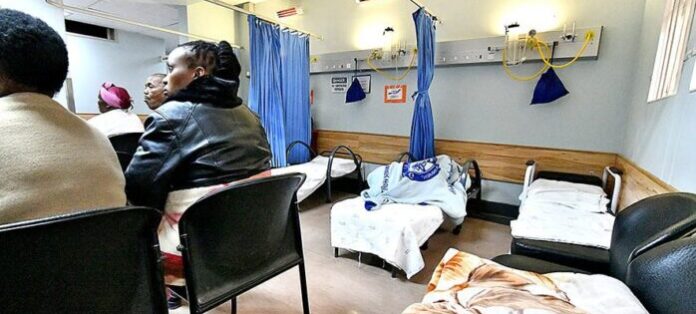Blockage of access to public health facilities in Gauteng over the past few weeks represents the lowest point in the perpetual display of hatred of African immigrants in South Africa.
It is just not fathomable that this would happen in a country with a painful history, characterised by hatred and legislated marginalisation of its majority Black population for nearly five decades under apartheid and more brutal conditions spanning centuries under colonial rule.
Both these brutal systems are entrenched to the extent that their remnants still manifest in a free SA in vivid ways.
The government can and should develop and use policy instruments to bring the right kind of empowerment to all South Africans. There is no coherent policy on such a pertinent area.
Criticism can be levelled against many African countries for having failed to create opportunities for their populations.
But that would be a futile exercise, because, while many African states have failed to build economies to the point that they should retain skilled and unskilled workforces, migration in Southern Africa should be understood within the context of greater regional politics.
Mercantilist thought that underpinned colonialism also nurtured capitalism in colonised countries.
The subsequent apartheid in SA nurtured to toxic levels a reactionary brand of parochial nationalism that mischaracterised the plurality of the nation’s population demographics.
Our capitalist economy inherited the bile that always coursed through the veins of its historical contexts.
But let’s focus on the lofty ideological politics that sustain the capitalist culture that chooses a zero-sum option over win-win or shared value creation.
Of course, corruption and crime are the two maladies that always play out in the nation’s lack of economic progress.
But capitalism sees both unskilled South Africans and African migrants as available cheap labour, the latter much cheaper and tantalising to an economic culture that always seeks the cheapest labour input cost.
Migration in the region is intricately tied to a migrant labour system, with capitalism’s access to cheaper than cheap labour from Black South Africa and people from the entire sub-continent.
It is a centuries-old system that cannot be wished away. The SA economy is the gateway to competitively priced regional labour.
Global capital strategies deployed in mining still include sending multitudes of Southern Africans underground cheaply.
Other visible global capital strategies play out in the automotive industry, where European and American carmakers assemble cars in SA for wages that account for affordable labour when compared to global standards, not too corrosive to what the investments are yielding.
South Africans in the margins of the economy and African migrants are both victims of unempowering politics in SA and their own countries.
As a bigger and more diversified economy, South Africa has benefited and continues to benefit from inward migration, which does come with both benefits and ills.
It is marginalised South Africans who reject African immigrants they regard as unwanted competition for resources and jobs.
Astonishingly, even when people form hateful organisations and proceed to block access to public hospitals and clinics, moves clearly divergent from enshrined constitutional provisions and incongruent with laws that seek to give them effect, these organisations seem to persist with impunity.
The state apparatus, often used arbitrarily, is not deployed to deal with these matters sufficiently. Immigrants have become an industry for corrupt police officials.
The little they earn in their peripheral economic endeavours gets mined out of them by corrupt elements in the police.
Immigrants continue to come to SA despite worsening conditions, as adverse sentiment against migrants grows because the alternative back home is worse.
Someone from Malawi would rather endure insults in SA, where they earn R200 a day and remit R100 to the family at home, where it holds its own against the kwacha.
Half of a day’s earnings in South Africa buys sufficient groceries for a small family in Malawi, where they prefer spending it at a South African supermarket.
The other half is what the labourer retains to buy necessities and perhaps leave some change for taxi fare to and from work the next day.
Those who create their own employment, such as running barber shops on the side of the road, send healthier remittances home and raise families on what seems very little in SA.
The government needs to reckon with migration issues with a greater understanding that better inclusive policies will always unblock opportunities for all.
• Seshibedi is a PhD candidate in the department of political sciences and international relations at the University of Pretoria



